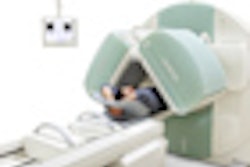There is no clear evidence of proton beam therapy's effectiveness in treating prostate cancer, according to a feature published online on 17 April in the British Medical Journal (BMJ).
Proton beam therapy is thought to target cancerous tissue more precisely than conventional radiation, thus minimizing harm to healthy tissue, reducing side effects, and increasing cure rates, according to journalist Keith Epstein. The technology has been shown to be beneficial and cost-effective for children with cancer and for some rare brain cancers. But the benefit of proton therapy for treating prostate cancer remains unclear, Epstein wrote (BMJ, 17 April 2012).
The U.S. has 10 proton beam centers, and 19 more are being built; more than 277 million euros ($363 million U.S.) is being spent on a project to build accelerators in Minnesota and Arizona, according to Epstein. The U.K.'s health secretary announced in December that 182 million euros ($238 million U.S.) would be put toward delivering such treatment in the state-owned National Health Service.
But the cost of proton therapy for prostate cancer is typically about twice as much as conventional radiation, three times as much as surgery, and four or five times as much as brachytherapy. And despite the amount of money going toward building accelerators, the first randomized, controlled trial comparing x-rays with proton beams is only just about to begin. That research, involving 400 patients and sponsored by the U.S. National Cancer Institute at Massachusetts General Hospital in Boston and the University of Pennsylvania in Philadelphia, won't be completed for seven years, he noted.
In his feature, Epstein cited Harvard Medical School radiation oncologist Dr. Anthony Zietman, who is involved in the Massachusetts General trial.
"We rush into treatments before they are proved. Sometimes people are later found to have been harmed," Zietman said. "I don't think we're doing harm [with proton therapy], but we don't know. In some instances, proton therapy might be inferior to existing treatments, and the quality of life might not be as good."



















